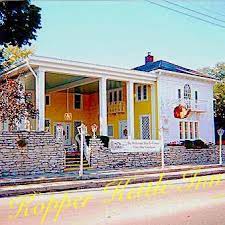Fall and the Sukkot Moon
Monday gratefuls: Diane home safe. Kep nudging me at 4 am. Frost. Ideas spinning. Downstairs to write. For Kep. Agency. Feeling strong in the move. Robin coming Wednesday. Fatigue. Long Covid? Mary. Kobe. On the waterfront, Osaka Bay. Mark, working for Amazon in Oklahoma City. Kristie. Urology Associates. Laughing with the Ancient Brothers. Creativity, creating. Acting. Growing here in Colorado. Me. Ruth.
Sparks of Joy and Awe: See’s Candy
Mostly deaf, mostly blind, still a sweet boy. Kep. Kep has adjusted to his disabilities, continuing his life as dogs do. My teacher. He sleeps more, sometimes going to bed as early as 5 pm. Eating well. Enjoying his day in a more subdued manner. Life at the short end.
Diane is my first cousin, the daughter of my mother’s brother, Riley Keaton. She grew up in Morristown, Indiana as did my mother and her four siblings: Riley, Roberta, Barbara, and Marjorie. After Mom and Dad moved to Indiana from Oklahoma when I was about a year and a half old, the Keaton extended family was always nearby. Marjorie in Muncie. Roberta in Arlington. Riley on the family farm in Morristown. Barbara sometimes in the state hospital sometimes not.
Grandpa and Grandma Keaton, Charlie (my namesake) and Mabel, lived in town in Morristown. Since the Keaton family grew up in Morristown, Morristown has always held a special place for all of us.
Morristown had about six hundred to seven hundred souls during my childhood and adolescence. An American small town to Alexandria’s small city status at 5,000 according to Indiana municipal designations.
 It also had and has a famous restaurant, the Kopper Kettle, where my Aunt Mame made fried chicken for tourists who would drive to quaint Morristown for dinner, often from Indianapolis. Locals however ate at the Bluebird with an excellent Sunday buffet, sugar cream pie, and a spot for old guys to drink coffee and solve world political issues.
It also had and has a famous restaurant, the Kopper Kettle, where my Aunt Mame made fried chicken for tourists who would drive to quaint Morristown for dinner, often from Indianapolis. Locals however ate at the Bluebird with an excellent Sunday buffet, sugar cream pie, and a spot for old guys to drink coffee and solve world political issues.
The Kopper Kettle is on Highway 52 which runs straight into Indianapolis. If you go a bit past it and find Morristown Road, you’ll go past the big house that Charlie and Mable lived in before his death. Further on Morristown Road quickly takes you into the country side where corn and soybeans dominate the landscape.
Hanover cemetery appears at the point where Morristown Road veers off toward the County Seat, Shelbyville, and a gravel road veers off in a wide V toward the family farm where my cousin Richard and his wife still live.
Many of my Keaton relatives found their final rest in Hanover cemetery, which Uncle Riley cared for and now Richard after him.
I spent many days and nights in Morristown while growing up, staying with Grandpa and Grandma, weeks at the farm. I loved the the small shed where the metal milk pails sat in a concrete water pool, cooled by an artesian spring until the milk man came to collect them.
I remember one time the Holsteins had come up from a field and begun heading out toward the road. I was there and Uncle Riley yelled at me, “Stop them!” I got scared at the big animals plodding toward me and got out of the way. Apparently all I would have needed to do was raise my arms and shout something at them. Uncle Riley was not happy with me.
Not long after we moved to Alexandria he had inscribed on wet cement Charlie polio, 1949. I think it was in a foundation for a corn crib. He was a sentimental guy who cried easily as I do still.
Not sure I’m getting this right. I want you to know the sweet memories, the lavender scented times, almost Victorian era life I experienced in this small town. One I prefer to my own hometown of Alexandria.
This will probably do it better than I’m able to this morning.
When the Frost is on the Punkin
